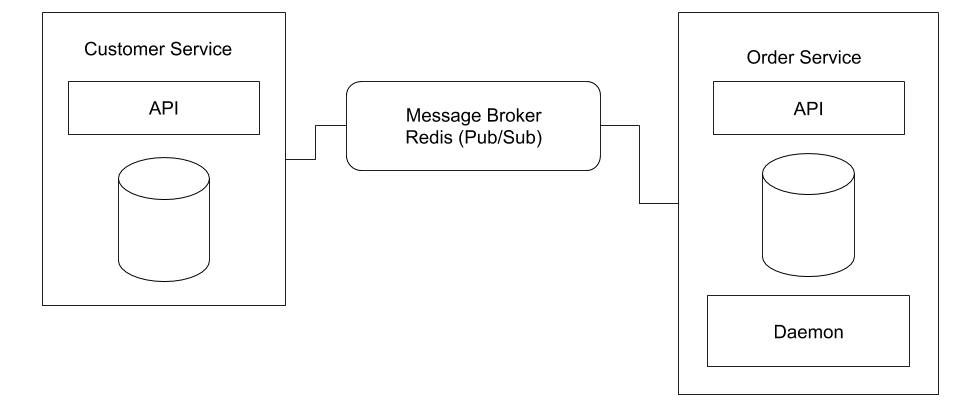This is a very basic example of how to implement a messaging system for a microservice architecture using Redis, Symfony, and Docker.
The complete system is divided into Customer Service, Order Service, and a Message Broker. Check below more details about each service.
Responsible by managing customer's data. It stores data in a MySQL database and provides a REST api containing two endpoints, one for creating a customer and one for listing existing customers:
- GET | http://localhost:8882/api/customers
- POST | http://localhost:8882/api/customer - parameters name, surname, total, status.
This service is connected into Redis for publishing a message when new customers are added. This message will be used later by the Order Service for adding an order for this customer when notified by the Daemon service.
It is responsible by managing order's data. It stores data in a MySQL database table and provides a REST api containing a single endpoint for listing all the existing orders:
This service contains a daemon system, which subscribes into Redis in order to be notified as soon as a new customer is added, adding then the new order in the database.
Redis comes with a powerful pub/sub system, so here it is used in order to publish and subscribe into a particular channel for making the isolated systems talk to each other.
For running this all you need is Docker installed on your machine. This project comes with a docker-compose.yaml containing all the configuration for running the services.
You should run docker-compose up from inside of the root folder. Docker will map the port 8881 with the order application and 8882 with the customer application.
Notice that in the last endpoint you are also sending some information that is not related to the customer (total and status) this is because imagine that you are ready to send your order but first you must register a new user for the visitor. After registering the new user it is time to register its order and it is Redis the one responsible by setting up the communication.
Also, you must execute the daemon application which comes with the Order Service, for this follow the steps below:
- Run
docker exec -ti CONTAINER_ID bash(the container of the Order Service) - Navigate into
/var/www/html/app/bin - Run
php daemon - Keep watching this terminal while you use the endpoint for creating a new customer
All done, have fun!
